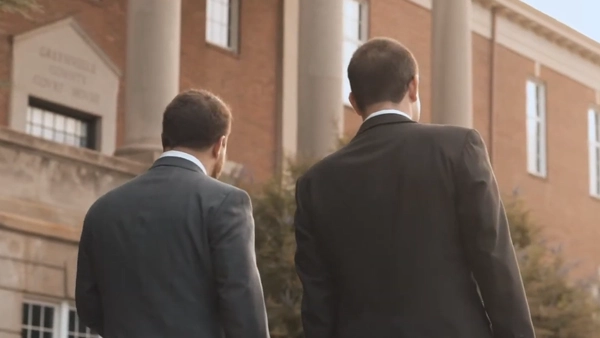The workers compensation system exists to help injured workers get medical care and replacement income quickly. As an employee, it can be frustrating to receive a denial letter. You may wonder what to do next.
You have the right to contest the denial, but the thought of a trial can be stressful. Is your workers compensation case likely to go to trial? How often does a case go to trial? Our workers compensation attorneys explain.
Only a few of workers’ compensation cases go to trial. In most cases, the insurance company accepts the claim or voluntarily pays before the trial date. Even if the court schedules the case for a hearing, the parties may still agree on a settlement before the trial begins.
Why do only a small percent of workers’ compensation cases go to trial?
In a workers’ compensation claim, the injured worker doesn’t have to prove that the employer or anyone else acted negligently. That’s a significant distinction from civil personal injury claims. Without the question of fault, there is less likely to be a contested issue in a workers claim than in other personal injury cases.
The worker still must prove that their injuries are a result of their employment. This can be grounds for a dispute. In addition, the insurance company may dispute whether an injury occurred at work or whether the person can continue to work. They may disagree with the worker about what medical benefits are needed or argue that they are not liable for benefits because of a procedural reason.
With the right evidence, most of these disputes can be resolved without going to trial. An injured worker can gather the information that they need to make a compelling case. They may gather the factual and medical evidence to prove their injuries and entitlement to benefits. Confronted with this compelling evidence, the insurance company may voluntarily agree to pay benefits.
Why is my workers’ compensation case going to trial?
Your workers’ compensation case may go to trial if the insurance company disputes your right to benefits. If your case is going to trial, ask yourself:
- Did you report your injury within 90 days of the accident? (Two years in case of death)
- Did you file Form 50 or Form 52 if the employer did not report your accident?
- Do you have proof that your medical treatment is necessary to lessen your disability?
- Have you treated with the doctors chosen by your employer or your insurance? Are you compliant with your treatment plan?
- Is your income compensation rate calculated correctly? What proof do you have of your average weekly wage? If you had two jobs, do you have proof of income for both jobs?
- Have you been released to light duty? If you cannot comply, do you have the needed medical proof that you cannot work?
- Is your impairment rating accurate? What proof do you have of the amount of compensation due?
To be successful at your workers’ compensation hearing, examine what issues the insurance company is contesting. Gather the evidence that you need to make your case and prove the amount of compensation you are entitled to.
What is a workers’ compensation trial?
A workers’ compensation trial is a hearing where a neutral third party determines your right to compensation. The insurance company does not have the final say if they deny your benefits. You have a right to a trial, and the final say belongs to the Workers’ Compensation Commission..
If your case goes to a hearing, it is important to understand the hearing process. Both sides can present evidence. Medical information may be a significant part of the hearing. It is important to have the right evidence and testimony to explain complex medical information to the court. It is important to arrive at trial prepared to offer the evidence and make your case.
Can an attorney represent me at my workers’ compensation trial?
You have a right to be represented by an attorney at your workers’ compensation hearing. Your attorney can help you identify contested issues, gather the evidence and present it to the Commission. If you testify at the hearing, your attorney can help you prepare.
Attorneys for workers’ compensation trials
If you have been injured at work, our workers’ compensation attorneys can help. Let us help you build your case and pursue your rights. If your case goes to trial, we can represent you throughout the entire process. Contact us today for your free consultation and to begin working on your case.







